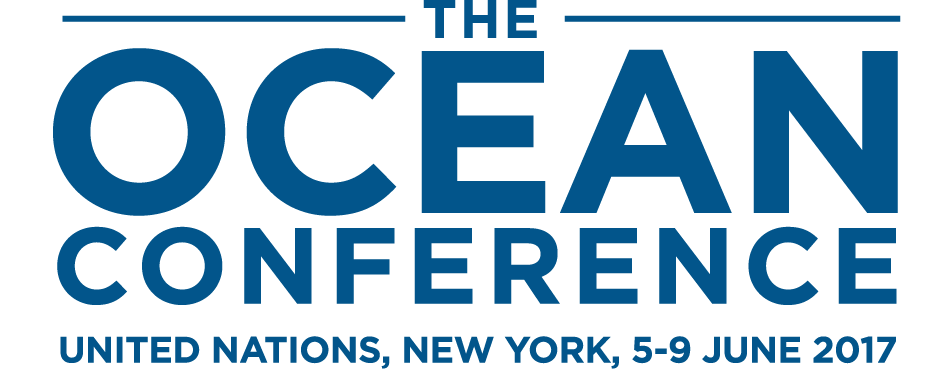Daily report for 25 July 2018
2nd Part of the 24th Session of the International Seabed Authority
On Wednesday, 25 July, the Assembly of the International Seabed Authority (ISA) addressed the draft strategic plan for the next five years, focusing on:
- the operationalization of the common heritage of humankind;
- the protection of the marine environment; and
- monitoring and review.
Report of the Secretary-General
KIRIBATI urged consideration of possible harm to coastal states among contractors’ and sponsoring states’ responsibilities, underscoring disproportionate burdens on coastal states, especially on Small Island Developing States (SIDS). The CENTER FOR POLAR AND DEEP OCEAN DEVELOPMENT recommended strengthening cooperation with international organizations and stakeholders to promote mutual “reasonable regard” between activities in the Area and other activities in the marine environment.
The DEEP SEA CONSERVATION COALITION (DSCC) asked for holding open and live-streamed meetings of the Legal and Technical Commission (LTC), and drew attention to a submission to the ISA by 50 NGOs on Sustainable Development Goal (SDG) 12 on sustainable consumption and production and SDG 14 on oceans, emphasizing reusable technologies, recycling, and better product design. He regretted that the LTC and the Council did not address the testing of mining equipment, calling for transparent procedures for review and decision-making. The PEW CHARITABLE TRUSTS underlined: the need for more resources to develop robust regulations and scientifically sound regional environmental management plans (REMPs); the challenge of translating the precautionary principle into adaptive rules; the need to draw on best practices from similar industries in drafting the regulations and addressing compliance; and the need for no-mining zones. IUCN called for enhanced coordination with the Convention on Biological Diversity (CBD) and the process on marine biodiversity of areas beyond national jurisdiction (BBNJ); and drew attention to a new IUCN report highlighting that UNCLOS obligations to protect the marine environment imply the option of not proceeding with deep-seabed mining, if adequate protection cannot be guaranteed.
Delegates took note of the Secretary-General’s report.
Strategic Plan
Secretary-General Lodge introduced the draft strategic plan 2019-2023 (ISBA/24/A/4), reporting on an open consultation process. He also introduced a draft decision requesting the Secretary-General to prepare, for consideration at the 25th Session: a high-level action plan with key performance indicators and outputs; and a detailed overview of implementation mechanisms, including monitoring and evaluation. Several delegations welcomed the draft strategic plan and the consultative process that led to it.
NEW ZEALAND noted the plan is just the start of a long-term process, recommending a similarly open consultative process for formulating future strategic plans and, supported by the UK, welcomed recognizing the link between the ISA’s work and the SDGs. INDIA suggested establishing milestones, timelines, and deliverables to ensure effective implementation of the strategic plan. The FISH REEF PROJECT suggested reflecting in the draft plan the need for social mitigation projects in coastal areas.
Exploitation Regulations: The NETHERLANDS, supported by the UK, queried how the agreed target for the completion of the draft exploitation regulations in 2020 fits into the implementation of the strategic plan. AUSTRALIA, supported by the UK, stressed the balance between sound commercial practices and environmental considerations in light of UNCLOS and SDG 14. JAPAN recommended a balanced approach between contractors and marine protection. POLAND recommended including REMPs and the data management strategy in the exploitation regulations. SINGAPORE cautioned against pre-judging the outcomes of the exploitation regulations.
International Cooperation: AUSTRALIA underscored the need to articulate outcomes related to cooperation with other organizations and avoid silos. NORWAY supported collaboration with other organizations in marine research. JAPAN welcomed cooperation with other international organizations, noting that it helps with SDGs’ implementation.
Common Heritage: The AFRICAN GROUP, JAMAICA and the PHILIPPINES called for strengthening references to the common heritage. THAILAND highlighted equitable sharing of financial benefits and more opportunities for developing countries to participate in the Training Programme. TONGA underscored equitable benefit-sharing and the establishment of the Economic Planning Commission to operationalize the common heritage principle. JAMAICA, supported by the AFRICAN GROUP, opposed reference to the Enterprise’s operation as a “future” issue and called for more ambitious language on the Enterprise as an “independent” organ. CUBA underlined the need to ensure capacity building and technology transfer for developing countries aligned with the common heritage principle. BANGLADESH stressed the need for robust exploitation regulations reflecting international standards in line with the SDGs to ensure benefits for all humankind; and, with TONGA, NAURU and CHINA, requested a dedicated section on the common heritage and equitable benefit-sharing. MEXICO emphasized: collaborative networks for sharing marine research results and promoting technology transfer to benefit developing countries; and a mechanism to address the impacts of exploitation in the Area on the economies of land-based producers of the same minerals. MOROCCO suggested involving developing countries in scientific research, and develop a payment regime that ensures equitable benefit-sharing.
POLAND recommended promoting scientific cooperation and data sharing, and operationalizing the Enterprise to share benefits from the common heritage of humankind. FRANCE drew attention to: the Massachusetts Institute of Technology’s (MIT) study on the financial payment system; the equitable sharing of financial and other economic benefits derived from activities in the Area; and the assessment of the impacts of deep-seabed mining on the economy of countries that are land-based producers of the same minerals, and a compensation mechanism for these countries. INDIA called for prioritizing capacity building and further analyzing the financial models for equitable benefit-sharing.
Participation: The AFRICAN GROUP sought clarification on a reference to “integrated,” rather than “full,” participation by developing states. NAURU underlined the importance of developing countries’ participation, especially SIDS. The PHILIPPINES called for consistent references to developing countries’ participation. The DSCC requested reference to “ensuring,” rather than “facilitating,” fuller, more active and more informed participation by ISA members and stakeholders.
Transparency: GERMANY, supported by the DSCC, requested reference to “ensuring,” rather than “facilitating,” access to non-confidential information; and suggested addressing transparency explicitly. BELGIUM supported public consultation and, with ITALY and CHILE, transparency. ARGENTINA asked how stakeholder consultation and public access to environmental information will be ensured. INDIA recommended clarifying transparency criteria. The DSCC recommended referring not only to ensuring public access to environmental information, but also to stakeholder participation in decision-making, review and judicial matters.
Environmental Protection: The AFRICAN GROUP supported stronger language on environmental protection. CAMEROON suggested including among guiding principles on environmental protection also ensuring a better understanding of the marine environment. CUBA emphasized the role of environmental impact assessments and REMPs. MEXICO emphasized transparency and collaboration in designing REMPs. The DSCC recommended reference to “ensuring” the effective protection of the marine environment.
TRINIDAD AND TOBAGO recommended joining global efforts to fight pollution and climate change, as well as achieve SDG 14. NEPAL supported taking note of: the transition from the exploration to exploitation phase; an “ecosystem first approach;” the polluter pays principle; transparency; and the sharing of quantitative and qualitative data on the Area.
The AFRICAN GROUP, with NAURU, the PHILIPPINES and CHILE, called for references to the BBNJ process. JAMAICA suggested referring to transparent and accountable methods to ensure coherence between the ISA and the BBNJ process, as well as the effective protection of the marine environment.
SINGAPORE proposed better reflecting the ISA’s role in marine protection; and suggested that the ISA effectively safeguard not only the legitimate interests of members and contractors, but also other users of the marine environment. BELGIUM requested references to: conservation, protected areas, and the precautionary approach. NORWAY, supported by the UK, pointed to the challenges of addressing the scientific, technical and commercial uncertainty in relation to environmental protection.
The HOLY SEE encouraged the ISA to ensure that the rights of member states and commercial enterprises do not shift the focus away from the greater good of protecting the environment. The DSCC drew attention to a joint submission on the strategic plan from 50 NGOs calling for a process to investigate in a comprehensive, participatory and science-based manner the need for deep-seabed mining and its long-term consequences for the planet and humankind. He proposed replacing “developing scientifically and statistically robust monitoring programmes and methodologies to assess the potential for activities in the Area to interfere with the ecological balance of the marine environment” with “preventing, reducing and controlling pollution and other hazards to the marine environment, including through developing appropriate regulations, procedures, monitoring programmes and methodologies.” IUCN urged integrating in the strategic plan reference to strategic environmental goals and objectives, which should be considered binding standards to guide the development of REMPs and environmental management plans.
Monitoring and Review: TONGA underscored the need for review mechanisms. CHINA suggested that monitoring and review mechanisms should include regular analysis of metal and mineral market prices, trends and potential impacts on land-based producers of those minerals. GUYANA suggested a list of short, mid, and long-term goals to monitor the plan’s implementation. SINGAPORE cautioned against excessive evaluation mechanisms. ITALY underscored regular monitoring of risks of pollution. ARGENTINA queried which ISA organ will be tasked with implementing the monitoring and evaluation mechanism.
Secretary-General Lodge proposed: developing timelines in the action plan to be considered at the next session; and incorporating suggestions into a revised draft of the strategic plan, and entrusting delegations to work informally on the accompanying decision, for the Assembly’s consideration on Thursday.
Report of the Finance Committee
Finance Committee Chair Andrzej Przybycin (Poland) introduced the report of the Finance Committee (ISBA/24/A/6), highlighting: implementation of cost-saving measures; the proposed budget for 2019-2020 of US$18 million; and agreement on the need to increase overhead charges to contractors from US$47,000 to US$60,000, as well as an additional voluntary contribution of US$6,000, on an opt-out basis, to contribute to the shortfall in the Voluntary Trust Fund to support participation in the LTC and Finance Committee meetings.
INDIA reiterated reservations on the increase of overhead costs for contractors, requesting time to consult capital and access to historical data on administrative costs. Secretary-General Lodge indicated that all available data have been made available. The UK considered the increase “fair.” CANADA reiterated the need to overcome the deficits of the voluntary funds to ensure adequate participation by developing countries. ARGENTINA, supported by JAMAICA, pointed to broad support for the budget. Delegates agreed to discuss this item again on Thursday.
In the Corridors
As the Assembly approached midweek, delegates finally tackled the strategic plan. “This is not a perfect plan,” one delegate stated, “but it is a good one” in succinctly capturing the challenges of striking the right balance between exploitation and environmental protection. Others subscribed to the understanding that it is “better to have a plan at this stage than a perfect plan not in time,” with the 2020 timeline for completing the exploitation regulations “just around the corner.” Some participants noted that the plan responds to the need for the ISA to remain flexible in the context of “changing times” and, as one delegate added, “amid considerable scientific, technical and commercial uncertainty.” Heading to the Secretary-General’s evening reception, many anticipated a swift adoption on Thursday of a further improved strategic plan to “chart the path ahead.”
-->
Specific funding for coverage of the Ocean Conference - June 2017, has been provided by the
XXX, XXX, and XXX
-->
IISD Reporting Services is a division of the International Institute for Sustainable Development (IISD).
Earth Negotiations Bulletin (ENB), ENB+, and Knowledge Management for Sustainable Development
are branches within IISD Reporting Services.
© 1992-2018, IISD Reporting Services. All rights reserved.







